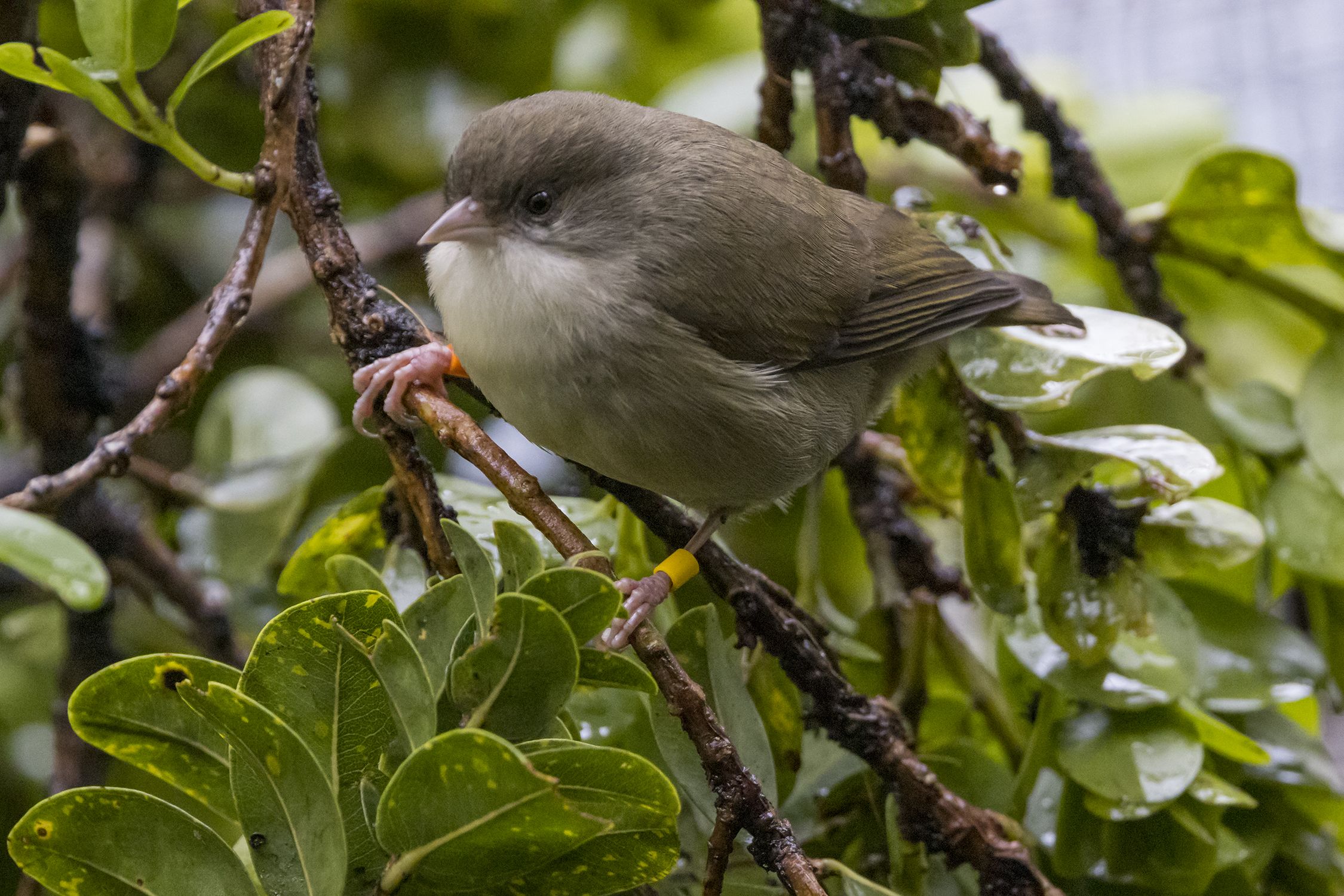Hawaiian Bird Extinction Risk as Wildfires and Climate Change Intensify
Published on February 28, 2026 by Dr. Ahmad Mahmood

Hawaiian bird extinction is accelerating as wildfires and climate change push native forest species to the brink. The Hawaiian Islands once supported more than 50 species of honeycreepers, yet today only a fraction remain. Habitat loss, invasive species, rising temperatures, and fire are converging into a systemic crisis.
This matters not only for biodiversity but also for ecosystem stability, cultural heritage, and climate resilience. In this article, we examine the science behind Hawaiian bird extinction, explore real world case studies, assess economic and ecological impacts, and outline strategic solutions that can still prevent irreversible loss.
Scientific Foundations Behind Hawaiian Bird Extinction
Hawaiian birds evolved in geographic isolation over millions of years. As a result, they developed highly specialized ecological roles. However, this specialization now makes them extremely vulnerable.
Island Evolution and Vulnerability
Most native forest birds belong to the honeycreeper radiation, a classic example of adaptive evolution. Because Hawaii lacked land predators and mosquito borne diseases for most of its history, native birds evolved without defenses against these threats.
Consequently, even small environmental changes can trigger population collapse.
Climate Change and Mosquito Expansion
Rising temperatures are expanding the range of invasive mosquitoes into higher elevation forests. These mosquitoes transmit avian malaria and avian pox.
Historically, high elevation forests served as disease refuges. However, warming trends now allow mosquitoes to survive year round at elevations that once protected rare species.
Scientific monitoring shows that just a 1 to 2 degree Celsius increase in average temperature significantly increases mosquito survivability in montane habitats.
Wildfires in Native Forests
Wildfires were historically rare in Hawaiian ecosystems. Native forests evolved in moist conditions with low fire frequency.
However, invasive grasses such as fountain grass have created continuous fuel beds. Combined with prolonged drought linked to climate change, these grasses dramatically increase wildfire intensity and spread.
After fires, invasive plants often outcompete native vegetation, permanently degrading habitat critical to endangered birds.
Environmental and Economic Impacts of Hawaiian Bird Extinction
The consequences of Hawaiian bird extinction extend beyond biodiversity loss.
Ecological Disruption
Native birds play key roles in:
- Pollination of endemic plants
- Seed dispersal in montane forests
- Insect population control
Without these birds, forest regeneration declines. Over time, this weakens watershed protection and increases erosion.
Healthy Hawaiian forests are vital for freshwater recharge. Their degradation affects water security for agriculture and communities.
Economic Implications
Hawaii’s economy relies heavily on tourism and ecosystem services. Birdwatching and ecotourism generate millions annually.
Furthermore, degraded forests increase wildfire suppression costs and watershed management expenses. Restoring burned areas requires substantial public investment.
Therefore, Hawaiian bird extinction carries measurable financial risk alongside ecological loss.
Real World Case Studies
ʻAkikiki on Kauai



The ʻAkikiki, also known as the Kauai creeper, is one of the most critically endangered forest birds. Populations have plummeted due to avian malaria and habitat degradation.
Recent surveys indicate that only a small number remain in the wild. Conservation programs now rely on captive breeding to prevent total Hawaiian bird extinction of this species.
Image Description: ʻAkikiki perched on native forest branch in Kauai
Suggested Source: Wikimedia Commons
Alt Text: Critically endangered ʻAkikiki impacted by Hawaiian bird extinction crisis
Maui Wildfires and Forest Loss
The 2023 Maui wildfires demonstrated how quickly habitat can be lost. While coastal impacts dominated headlines, upland forests also experienced stress from drought and invasive grass spread.
Fire damaged critical bird habitat and increased future ignition risk. This feedback loop accelerates Hawaiian bird extinction by shrinking safe breeding zones.
Mosquito Control Innovation
Hawaii has initiated landscape scale mosquito suppression using incompatible insect techniques. By releasing sterile male mosquitoes, scientists aim to reduce disease transmission.
Early pilot programs show promise. If scaled effectively, this intervention could slow Hawaiian bird extinction across high elevation forests.
Challenges and Barriers
Despite growing awareness, significant obstacles remain.
Geographic Isolation
Hawaii’s remote location increases logistical costs for equipment, conservation staff, and restoration materials.
Funding Constraints
Long term ecosystem restoration requires sustained investment. However, funding cycles are often short term and reactive.
Invasive Species Management
Removing invasive plants and animals is technically complex. Even after removal, reinvasion risk remains high.
Climate Uncertainty
Projected warming trends indicate continued expansion of mosquito habitat. Without rapid emissions reductions globally, local conservation measures face uphill challenges.
Solutions and Strategic Pathways to Prevent Hawaiian Bird Extinction
Preventing Hawaiian bird extinction requires coordinated action across science, policy, and community engagement.
1. Landscape Scale Mosquito Suppression
- Expand sterile male mosquito programs
- Integrate biological control with habitat restoration
- Monitor disease prevalence continuously
This strategy directly addresses avian malaria, currently the most acute driver of Hawaiian bird extinction.
2. Invasive Grass Removal and Fire Management
- Mechanical removal of invasive grasses
- Prescribed burns in controlled areas
- Native species replanting to reduce fuel loads
Reducing wildfire frequency protects critical bird refuges.
3. High Elevation Forest Protection
- Designate additional conservation areas
- Restrict development near sensitive habitats
- Improve fencing to prevent ungulate damage
Healthy native forests provide natural climate buffers.
4. Climate Policy Alignment
Ultimately, local action must align with global climate mitigation. Limiting warming reduces mosquito range expansion and wildfire severity.
Investors and policymakers should integrate Hawaiian bird extinction risk into climate adaptation planning.
5. Community and Cultural Engagement
Native Hawaiian communities possess deep ecological knowledge. Integrating cultural stewardship strengthens conservation legitimacy and long term outcomes.
Frequently Asked Questions
Why are Hawaiian birds more vulnerable than mainland species?
Hawaiian birds evolved without predators or mosquito borne diseases. Therefore, they lack natural resistance to invasive species and pathogens introduced in the past two centuries.
How does climate change accelerate Hawaiian bird extinction?
Rising temperatures allow mosquitoes carrying avian malaria to expand into higher elevations. At the same time, drought increases wildfire risk, destroying habitat.
Can captive breeding prevent extinction?
Captive breeding can prevent immediate loss. However, without habitat protection and disease control, reintroduction success remains limited.
What can individuals do to help?
Support conservation organizations, advocate for climate policy, reduce carbon footprints, and practice responsible tourism that respects native ecosystems.
Conclusion
Hawaiian bird extinction is not an abstract environmental issue. It represents a measurable collapse of unique evolutionary history driven by climate change, invasive species, and wildfire intensification.
However, science based interventions exist. Mosquito suppression, invasive species control, forest restoration, and climate mitigation can collectively stabilize vulnerable populations.
The window for action is narrow. Policymakers, investors, and citizens must treat Hawaiian bird extinction as an urgent conservation priority. Protecting Hawaii’s forest birds safeguards biodiversity, water resources, and cultural heritage for future generations.
Now is the time to support evidence based conservation and climate action.